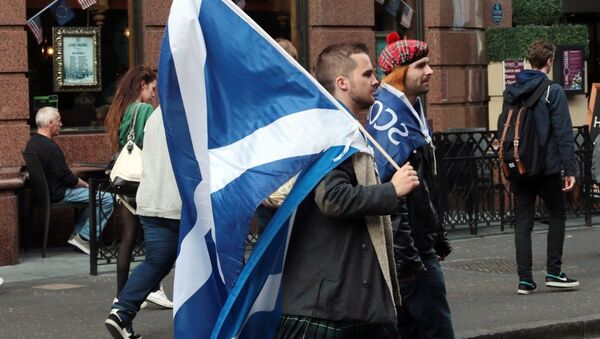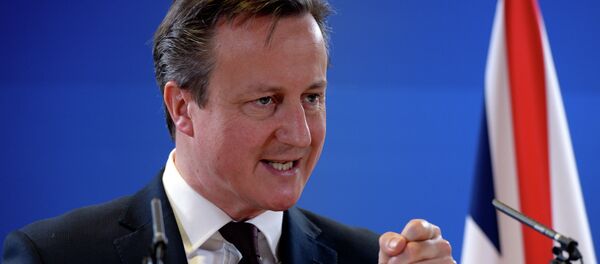LONDON (Sputnik), Anastasia Levchenko — The outcome of Thursday's UK general election suggests that the traditional British party system is gone and that the decision-making process in the country will now depend on negotiations between England and Scotland, British experts said.
"There is no more British party system. This undermines one of the key features of our multinational state, the ability of political parties to tie the component parts together," Professor Michael Keating, Director of the British Centre on Constitutional Change said in an exclusive interview for the Centre's press release obtained by Sputnik.
He added that the next UK government will have to take forward constitutional reform through an inter-party dialogue, based on the recommendations of the Smith Commission.
"This process will now come to look more like a negotiation between Scotland and England rather than a search for consensus," Keating said.
"Standing up for England became a key election theme for both the Conservatives and UKIP," Jones said, adding that the Scottish Independence referendum has had a profound impact on England.
Ailsa Henderson, Professor of Political Science at the University of Edinburgh and Fellow of the Centre on Constitutional Change stressed that the election results in Scotland and the rest of the United Kingdom suggest that in the coming years the country will see "some difficult constitutional discussions."
"A Conservative government suggests a referendum on UK membership in the EU is now looming. This is an issue on which we know that Scots and English voters have diverging preferences," Henderson said.
According to Craig McAngus, a research fellow at the University of Stirling in Scotland, the win of Conservatives in UK general election made the Brexit referendum inevitable.
"Obviously, I think it's going to be a referendum in 2017… Those who are Euro-skeptiс within the Conservatives know now they are going to have a referendum," McAngus told Sputnik. The expert added that Cameron is likely to allow his party to campaign on either side of the debate.
The Conservatives, led by David Cameron, won the country's general election, held on May 7, with an absolute majority. Cameron has pledged to hold a referendum on EU membership by 2017 if reelected.
The Scottish National Party that received a record 56 seats in parliament in the wake of last year's referendum on Scottish independence from the United Kingdom, opposes the referendum on Britain's EU membership.


